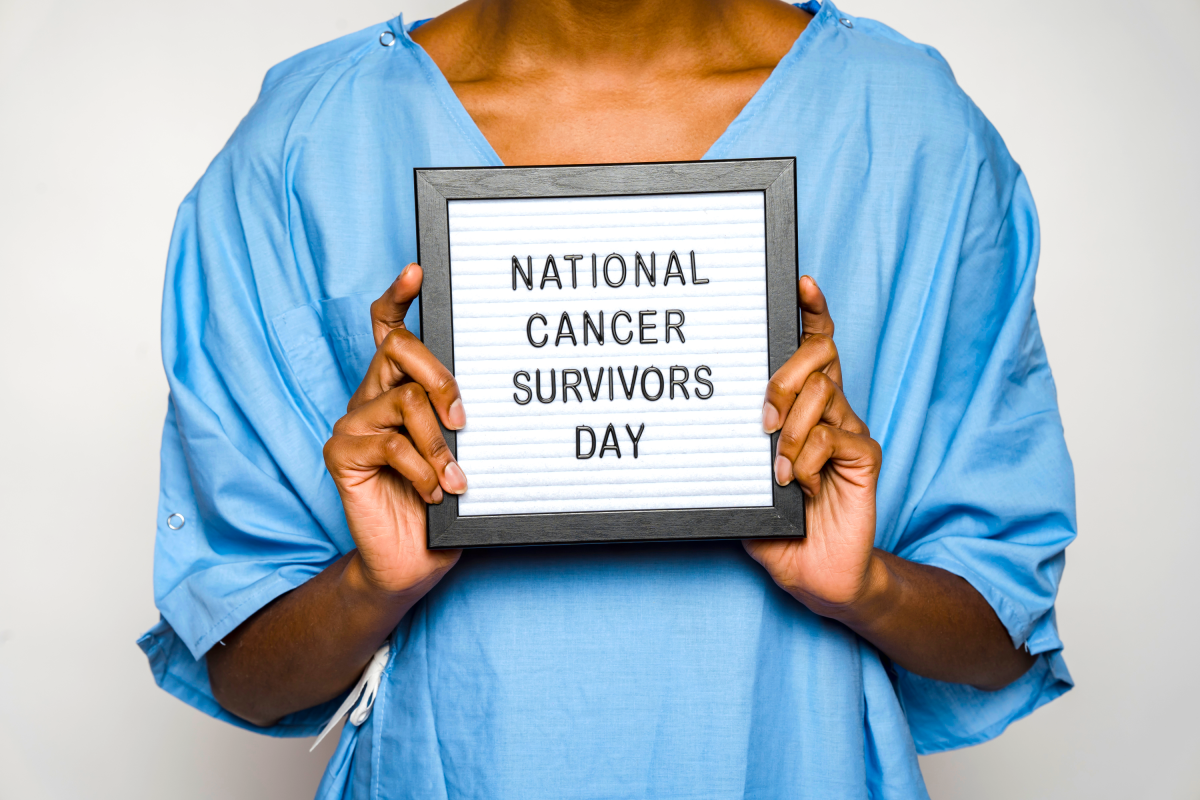Cancer currently ranks as a leading cause of death in every country in the world. This disease accounted for nearly 10 million deaths in 2020 alone, affecting people of every age, sex, race, ethnicity, financial status, and creed. Cancer doesn’t discriminate, and the unfortunate truth is that it can strike anyone at any time.
That said, some people may be at a higher risk based on certain lifestyle factors or familial history. With these variables in mind, who gets cancer, and how does it develop?
How Cancer Starts
Our bodies are made up of trillions of cells, and when cells grow old or become damaged, they die. Under normal circumstances, human cells grow and multiply to form new cells to replace the dead ones. But sometimes, there is a disruption to this process, causing abnormal or damaged cells to multiply and grow uncontrollably, spreading throughout the body. This is cancer.
Cancer can affect and spread anywhere throughout your body but is typically identified by the area where it is first diagnosed. For example, someone with a lump in their breast may also have cancerous cells in the surrounding tissue and organs but still refer to their diagnosis as breast cancer.
According to the National Cancer Registry (NCR), the most common cancers in South Africa in 2020 were breast, cervical, lung, colon and rectum, and prostate.
The Demographics of Common Cancers
Cancer diagnosis in South Africa is at an all-time high, affecting 1 in 4 people. While this disease touches populations from all walks of life, some types are more common among certain demographics.
Who Gets Breast Cancer?
In 2020, 2.26 million cases of breast cancer were reported worldwide. In South Africa, this is the number one most common type in women, with 1 in 25 people receiving a breast cancer diagnosis during their lifetime. While it affects all genders, it is 100 times more likely to be found in women than in men. Male breast cancer only accounts for 1% of cases.
All women are at risk, especially as they grow older. A family history of breast cancer, being overweight, inactivity, poor diet, alcohol consumption, smoking, and exposure to chemicals can all contribute to these risks.
Performing monthly self-breast exams to feel for lumps and having yearly mammograms will help with early detection. The baseline to begin getting annual mammograms is the age of 40, but you can talk to your doctor about personal risk factors to determine whether you should start having these tests earlier.
Who Gets Cervical Cancer?
According to the NCR, cervical cancer is the second most common type amongst South African women, with 1 in 40 females receiving this diagnosis. Women with a history of HPV or other sexually transmitted diseases may be at increased risk of developing cervical cancer, as are women who carried a full-term pregnancy at a young age (under 20).
Cervical cancer is most commonly diagnosed in women between the ages of 35-44, but it pays for anyone to be aware of symptoms. Look out for signs such as abnormal bleeding between periods, changes in your menstrual cycle, and vaginal pain or bleeding during intercourse. Yearly Pap smears and visits to your gynecologist are your best bet for early detection.
Who Gets Lung Cancer?
Lung cancer affects twice as many men as women, and you are also twice as likely to develop this if you have a family member who has had it. If you are a smoker, your chances increase by 90%.
Unlike mammograms and pap smears, there is no regular test to keep an eye on your lung health. And since the lungs have very few nerve endings, this type of cancer usually doesn’t show symptoms until the disease is more advanced. However, if you notice any of the following, it is best to err on the side of caution and see a doctor:
- A new cough that is persistent or produces blood
- Shortness of breath that comes on suddenly during normal, daily activities
- Pain in your chest, back, or shoulders that are more noticeable when you cough or laugh
- Hoarseness or wheezing
Who Gets Colon and Rectum Cancer?
With 1.93 million cases worldwide, this type falls fourth on the list of top cancers globally. However, colon and rectum cancer comes second in South Africa and is estimated to affect 1 in 116 females and 1 in 74 men.
This is another type that doesn’t show symptoms in the early stages, so adults at average or above risk for colon cancer should monitor their health carefully. Experts recommend having a baseline colonoscopy at age 50 and a follow-up procedure every ten years to help detect polyps and other symptoms sooner rather than later.
Later stage colon and rectum cancer can begin to show significant signs. Contact your doctor immediately if you notice a change in bowel habits, rectal bleeding or blood in your stool, persistent abdominal pain and discomfort, or unexplained weight loss.
Who Gets Prostate Cancer?
The prostate is a walnut-sized gland that is part of the male reproductive system. As women do not have prostates, this particular cancer does not directly occur in females (though related types may rarely appear in related organs around the urinary tract).
However, prostate cancer is very common among males. The Cancer Association of South Africa (CANSA) says that 1 in 18 men is at risk for this diagnosis, making it the most common cancer found in males. Local research also indicates that race plays into this statistic, proving more common in black men. Besides race, other risk factors include age, family history, and weight. By maintaining a healthier diet that includes more fruits and vegetables while limiting red meat and high-fat dairy products, men can reduce their risk.
Prostate cancer usually grows slowly and can be easily treated if caught early, but sometimes it can be quite aggressive. Experts recommend that men have a Prostate Specific Antigen (PSA) exam at age 40 and then annually after that, depending on the initial results and family history.
Usually, in the early stages, men will not experience symptoms. However, later on, you may notice frequent urination, difficulty urinating, pain during urination or ejaculation, or blood in your urine or semen. Consult your doctor immediately if you notice any of the above signs.
Preventing Cancer
You can’t entirely prevent cancer. It doesn’t discriminate, and every human is a candidate for a positive diagnosis. But there are ways to lessen your chances.
- Not using tobacco products
- Abstaining from alcohol
- Maintaining a healthy body weight
- Eating a nutritious diet
- Regular exercise
- Getting vaccinated against HPV
- Avoiding the sun or taking the proper precautions to limit exposure
Early Detection
Though regular screenings won’t prevent a cancer diagnosis, detecting and treating cases early can reduce your potential mortality rate.
With an early diagnosis, the chances of your body responding positively to treatment increase greatly. A successful early diagnosis usually involves the following steps:
- Being aware of symptoms and informing your doctor if you notice any of these changes in your body
- Having access to an evaluation and diagnostic services
- Getting a timely referral to needed treatments
Screening
Screening is testing performed to check specifically for cancer even when there are no symptoms. If abnormalities are identified during a screening procedure, then your doctor will perform additional tests to determine the causes and make a diagnosis.
Aynjil Insurance
When it comes to who gets cancer, there is no easy answer. Whether you’re more likely or less likely to receive a diagnosis, taking preventative steps can help keep you safe, healthy, and prepared.
At Aynjil, we know that there are many complicated facets to dealing with cancer. That’s why we aim to keep things simple. We offer a specialized cancer insurance product via a quick and easy four-minute online process. Our insurance works on top of any health insurance you already have and provides you with extra stability and peace of mind when dealing with a life-altering diagnosis.
At Aynjil, we’ve set out to create the world’s most innovative cancer insurance. Our claims process is effortless and paperless, and our team provides fast and efficient support via phone, email, live chat, or WhatsApp. To learn about the comprehensive safety net our product provides, just visit our website for more information to help you through your cancer journey.
Marketing by Joseph Studios



